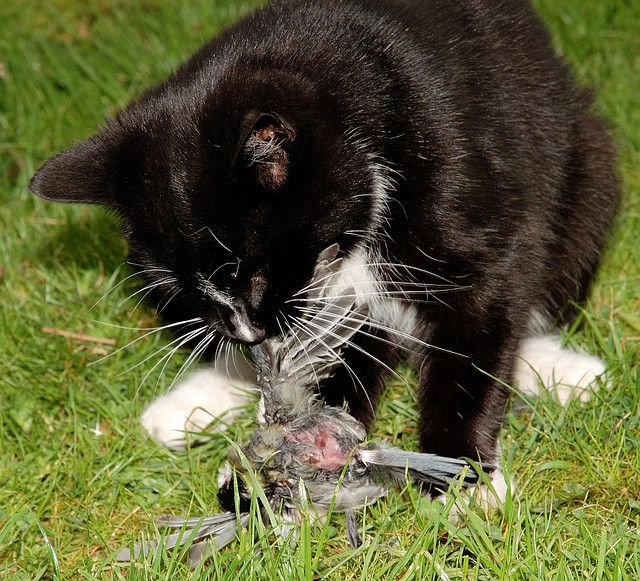Birth control for Bremen’s cats
As spring days are punctuated with the chirps and trills of bird song, a recent article in the Guardian seems especially timely. The northern German city of Bremen plans to take action to curtail its burgeoning population of free–roaming cats, estimated to be at least 1,000 strong.
Whether feral or domestic—cats take a significant toll on birds and many other small wild animals. A U.S. Fish & Wildlife fact sheet on bird mortality puts the figure at several 100 million a year in the United States.
The German city of Bremen is concerned about both its local songbirds, such as the Sedge warbler (Acrocephalus schoenobaenus) as well as the spread of disease. Under the proposed new law, all stray cats would be neutered and any pet owner found to have their cat roaming out of doors would be required to pay neutering fees. Supporters hope that if the law passes in Bremen it will spark similar laws across Germany. Public official Undine Kurth said in the Guardian article:
“It would help a lot if the federal ministry of agriculture would initiate a debate on the wretched situation.”
Recent population estimates in the United States put cat ownership in this country at 93.6 million. Domestic cats (Felis catus) are not native to North America; European colonists brought them here several centuries ago. Yet unlike our view of dogs, which must be leashed and cleaned up after, many Americans continue to feel that their cats should be allowed to roam free. And while cat owners may feed their felines gourmet cat food, this does not curb cats’ natural instinct to hunt and kill small prey.
Multiple states, veterinary organizations, and bird conservation groups all encourage voluntary steps by cat owners to keep their cats leashed or indoors. State Departments of Natural Resources offer information on the impact of cats on native wildlife, the American Veterinary Medical Association encourages owners of domestic cats in urban and suburban areas to keep them indoors, and the American Bird Conservancy has a handy brochure of tips to keep an indoor cat happy. Many of these organizations point out that in addition to helping native wildlife, cat owners who keep their pets indoors also protect them from disease, cars, and predators such as coyotes.
Meanwhile, back in Germany, according to the Guardian article, a few other German towns, such as that of Paderborn, introduced castration of stray cats several years ago. All residents are required to tattoo or implant their cats with a microchip. And those who give their cats the boot get socked with a steep fine.
Photo: http://www.flickr.com/photos/7955467@N03/3488673676
